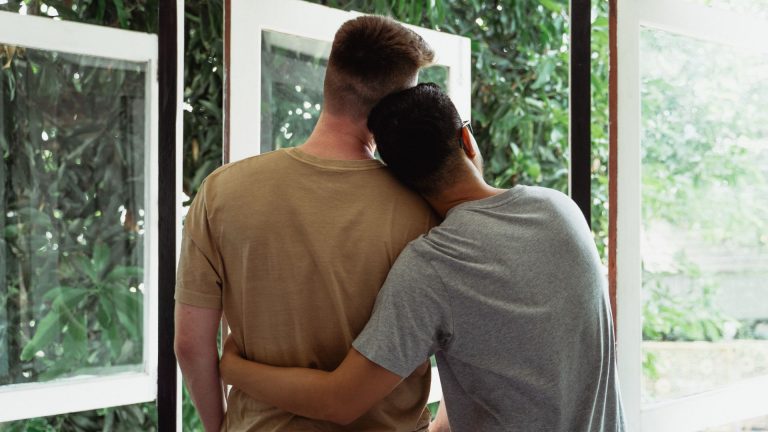
How mindfulness can help with communication
Mindfulness in communication is definitely the supreme discipline of mindfulness exercises, because you are not alone. In this article, I would like to share why it is still worth working on it.
In our everyday conversations, we usually go unconsciously with the flow
Wenn ein bestimmtes Thema im Raum steht, hat jeder seine Meinung dazu und teilt diese mit. Sind wir alle einer Meinung, läuft das Gespräch harmonisch ab. Sind wir unterschiedlicher Meinung, kann dies zu Debatten oder hitzigen Diskussionen führen. Manchmal ist das spannend und für viele eine Herausforderung, denn es geht darum, sich Gehör zu verschaffen. Mit den besseren Argumenten? Auch, aber meist auch mit der lauteren Stimme und dem offensiveren Auftreten.
In the end, we are usually no better off
It may be that someone who has convinced the others emerges as the "winner" from a discussion. But very often discussions also end in frustration. Everyone involved has tried to be as convincing as possible; at the same time, the message has not been understood by anyone.
We often don't listen in discussions
Jeder Beteiligte ist mehr damit beschäftigt, seine Argumente darzustellen, um die anderen zu überzeugen. Das Recht haben ist oft wichtiger als das Verstehen. Gerade in Partnerschaften kann das sehr belastend sein, denn es kommt schnell zu einem Machtkampf, der die Partner distanziert – unabhängig davon, wie gut die Argumente sind. Das bedeutet, selbst wenn uns etwas wirklich wichtig ist, kommen wir mit der Debatte oft nicht ans Ziel, denn der Kontext ist nicht darauf ausgelegt, Verständnis zu erzeugen.
Staying mindful is not easy
Even though I´m aware of these facts, I still find myself getting carried away by discussions, too. Especially when the topic or person is particularly important to me, I am all the more energetic in my efforts to persuade others. Defense and fight reactions are deeply rooted in us; that's why I call mindfulness in communication the supreme discipline and we can accompany ourselves with patience in this process.
How do I practice mindfulness in a conversation?
In my experience, staying mindful during a conversation can take place on two levels.
-
Mindfulness of the process
This means that through staying mindful, I notice how a conversation develops or plays out. I'm not just in the conversation, I'm also observing from the outside how an argument or power struggle is developing, for example. From the outside, I'm not trying to come up with the best arguments. Rather, I notice how productive the conversation is in general and can point this out or adapt my reactions so that a more constructive conversation can develop. And here we come to the second level.
-
Mindfulness towards the person you are talking to
This requires a conscious decision not to attack or defend myself. It means going along with the other person. My own opinion is not so important at first and that's what makes it so difficult.
Sheila McNamee, Phd., eine amerikanische Therapeutin und Kommunikationsforscherin, nennt diesen Prozess „radikale Präsenz“. Radikal, weil wir in diesem Moment voll und ganz bei der anderen Person bleiben und diese besser verstehen wollen. Umso ferner uns ihre Argumente vorkommen, so McNamee, umso präsenter sollten wir bleiben. Präsent bedeutet in diesem Fall, interessierte Fragen zu stellen, die genau auf das eingehen, was der andere gerade sagt.
Your counterpart doesn't have to convince you
The fact that you listen to someone else and give them space does not mean that you have to share their opinion afterwards. There's a good chance you'll stick to your opinion and that doesn't mean the conversation wasn't productive. We do not hope that radical presence will result in us being on the same side because we have the same opinión.
It's about building a relationship based on respect and trust
I respect that there may be other opinions besides my own, and I trust that other people do not have their opinions out of malice and therefore want to understand their reasons. With this attitude, I also hope that my counterpart will give me the same space with respect and trust. I have no guarantee of this, but this more present posture opens up opportunities rather than a heated debate.
Are we then not allowed to have our own point of view?
The fact that you don't put your opinion first doesn't mean that you can't have your own opinion. Just, in a present way you don´t impose your opinion, you share it, not as your truth, but as a possibility that you present to the other person. The other person can then decide what to do with it.
Mindfulness in communication could therefore mean that we try to make it possible, that a constructive conversation on an equal footing can take place.
In my counseling, I try to maintain this posture and ask more questions and share ideas instead of giving advice. If you are curious and would like to learn more about this form of communication, please feel free to contact me.
